Show me all articles
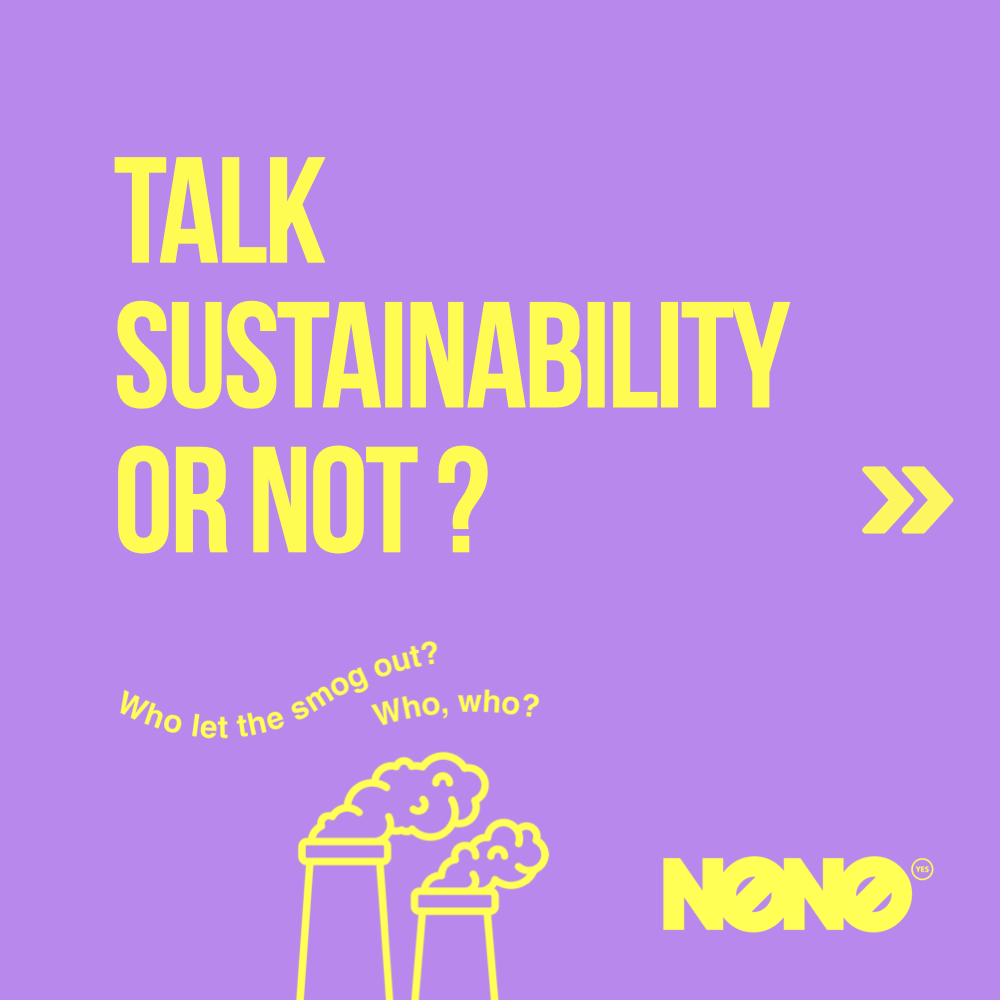
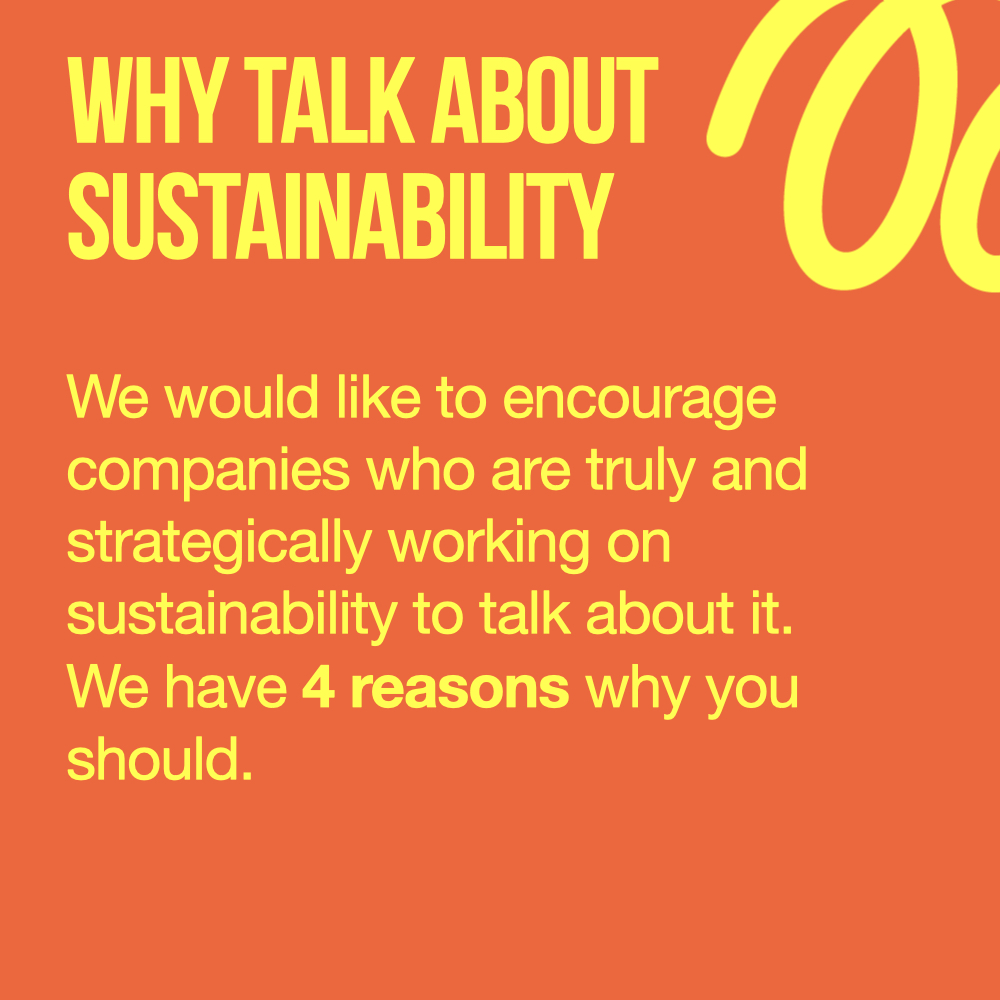
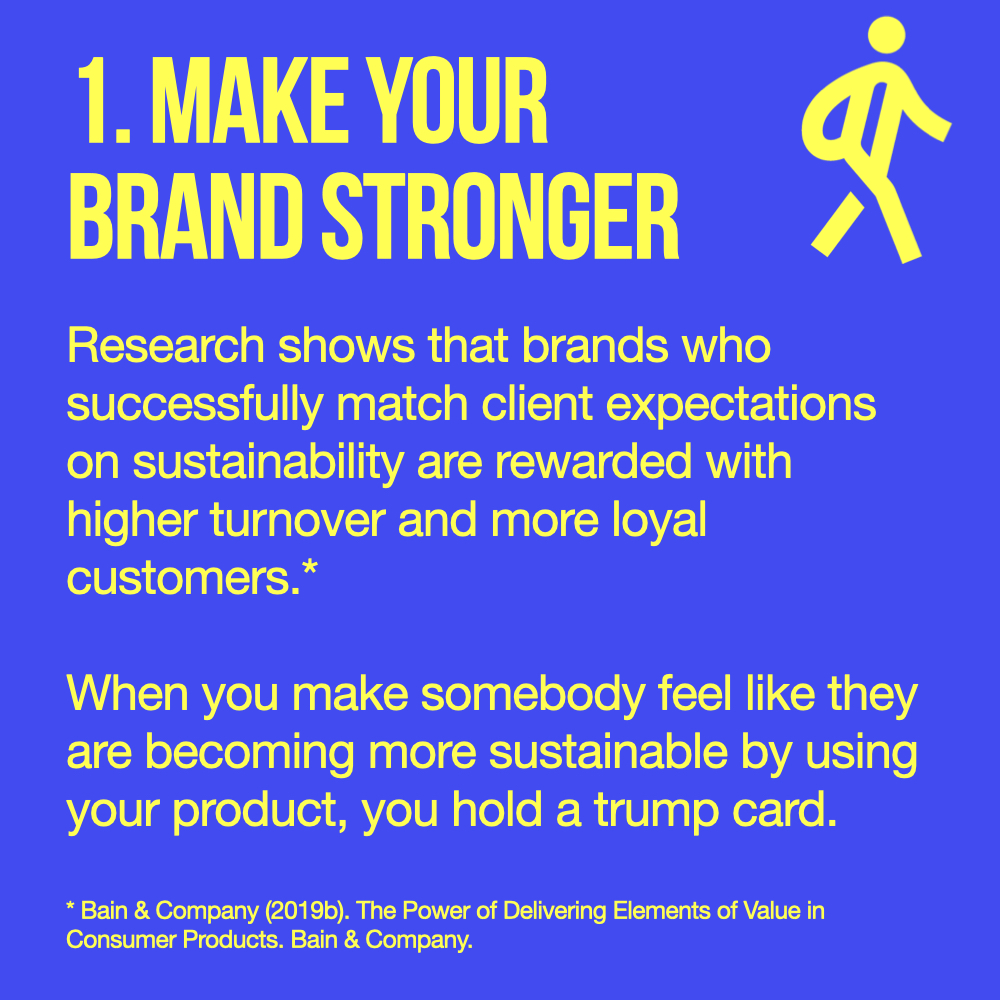
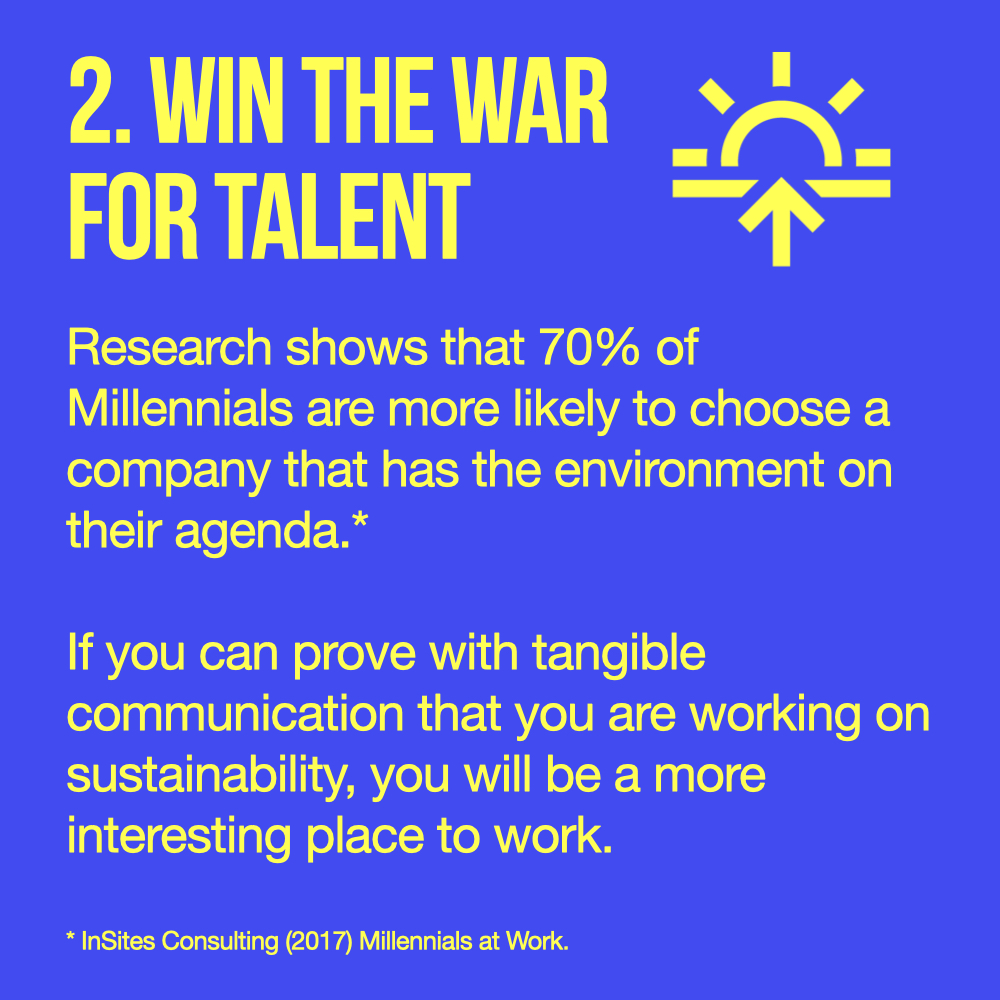
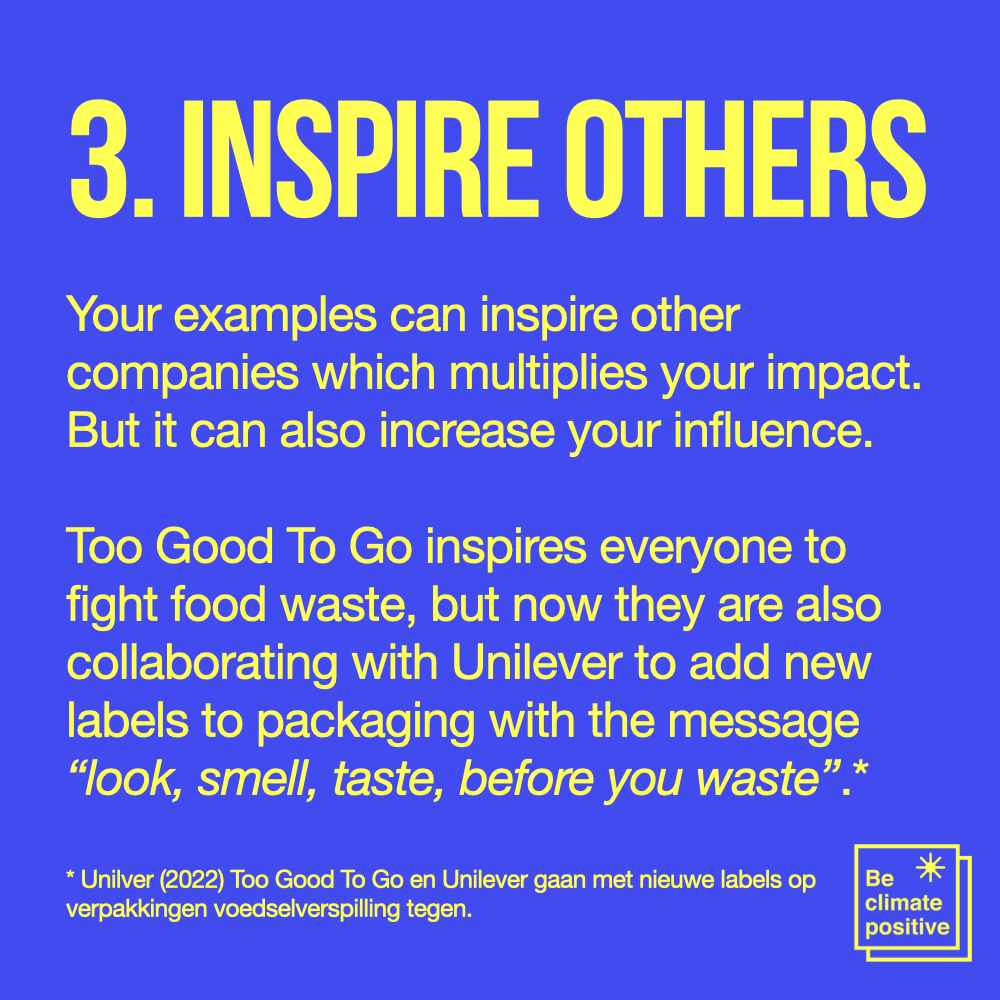
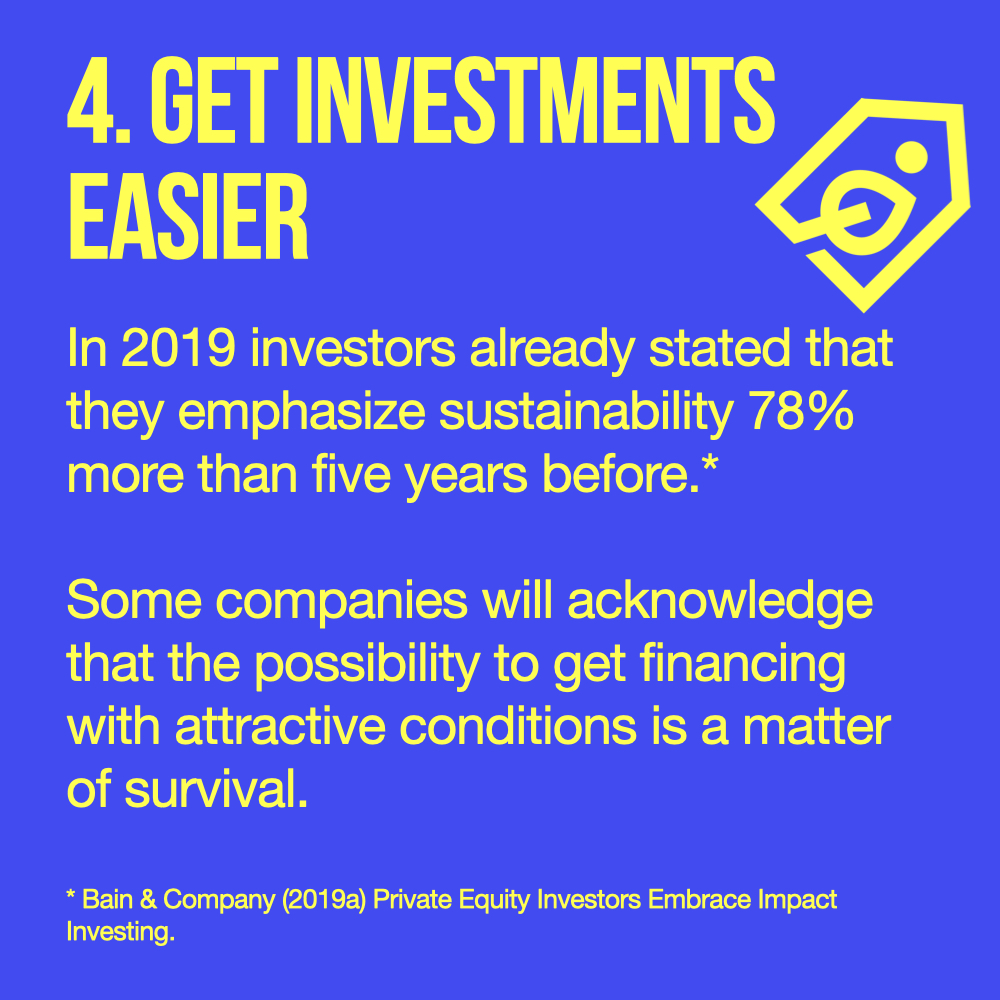
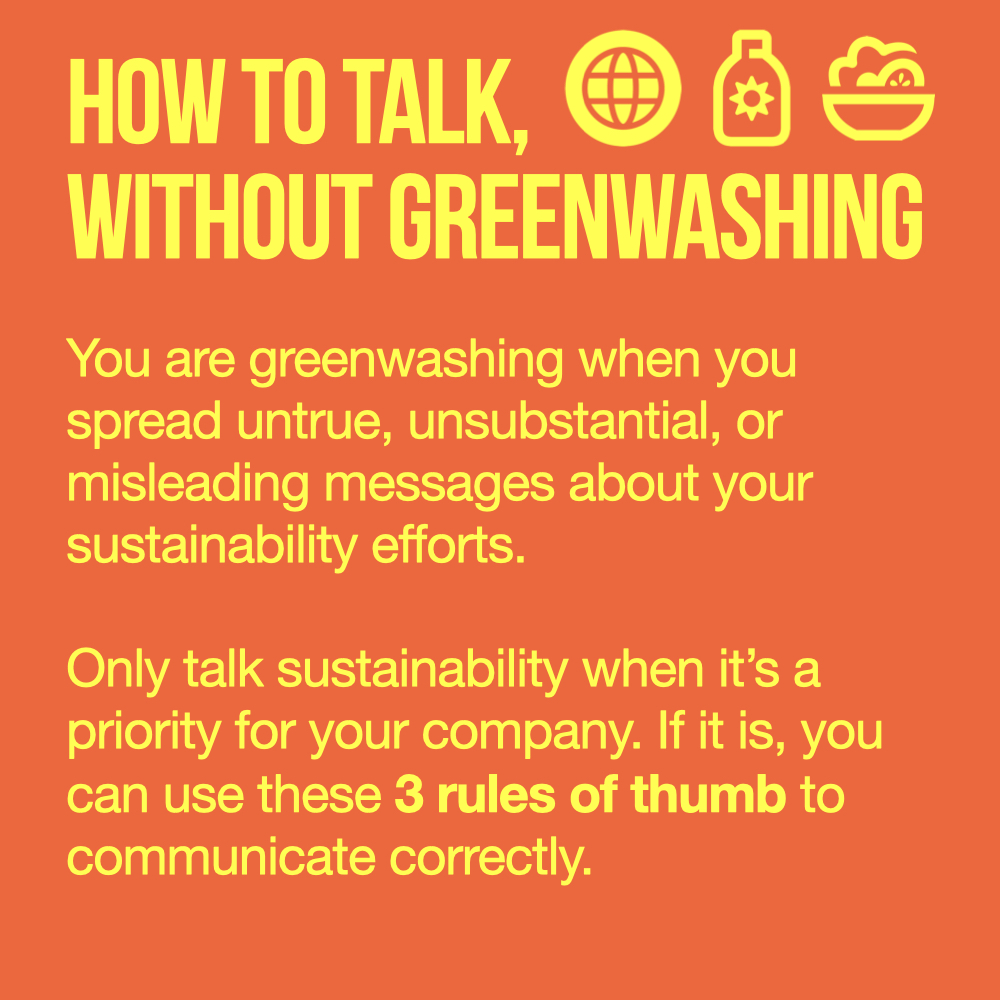
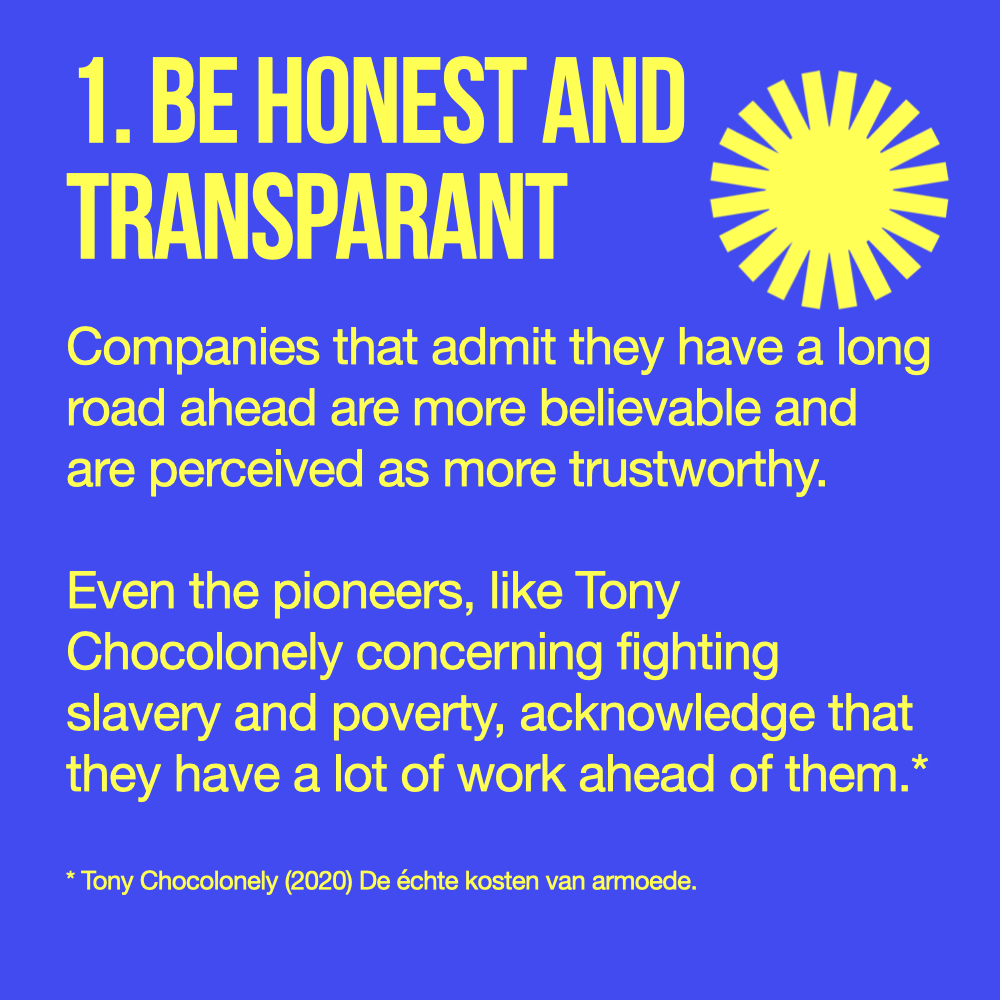
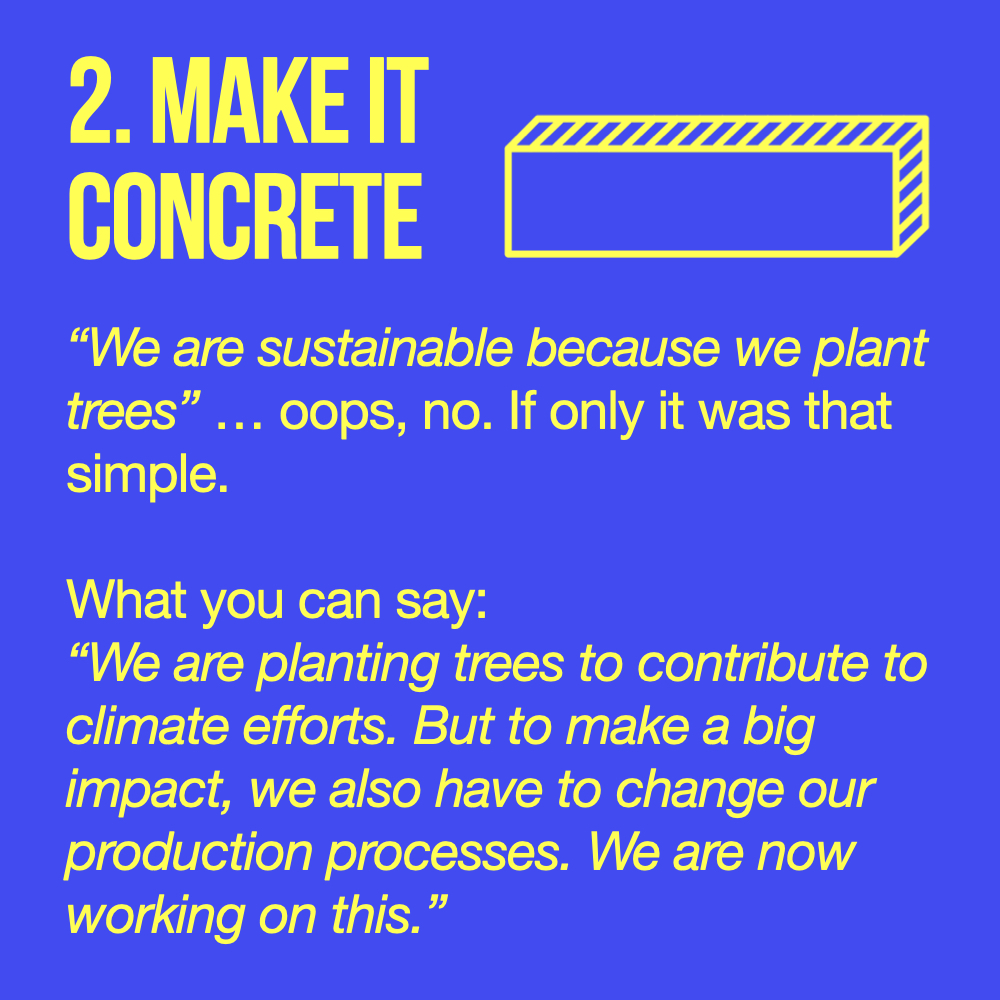
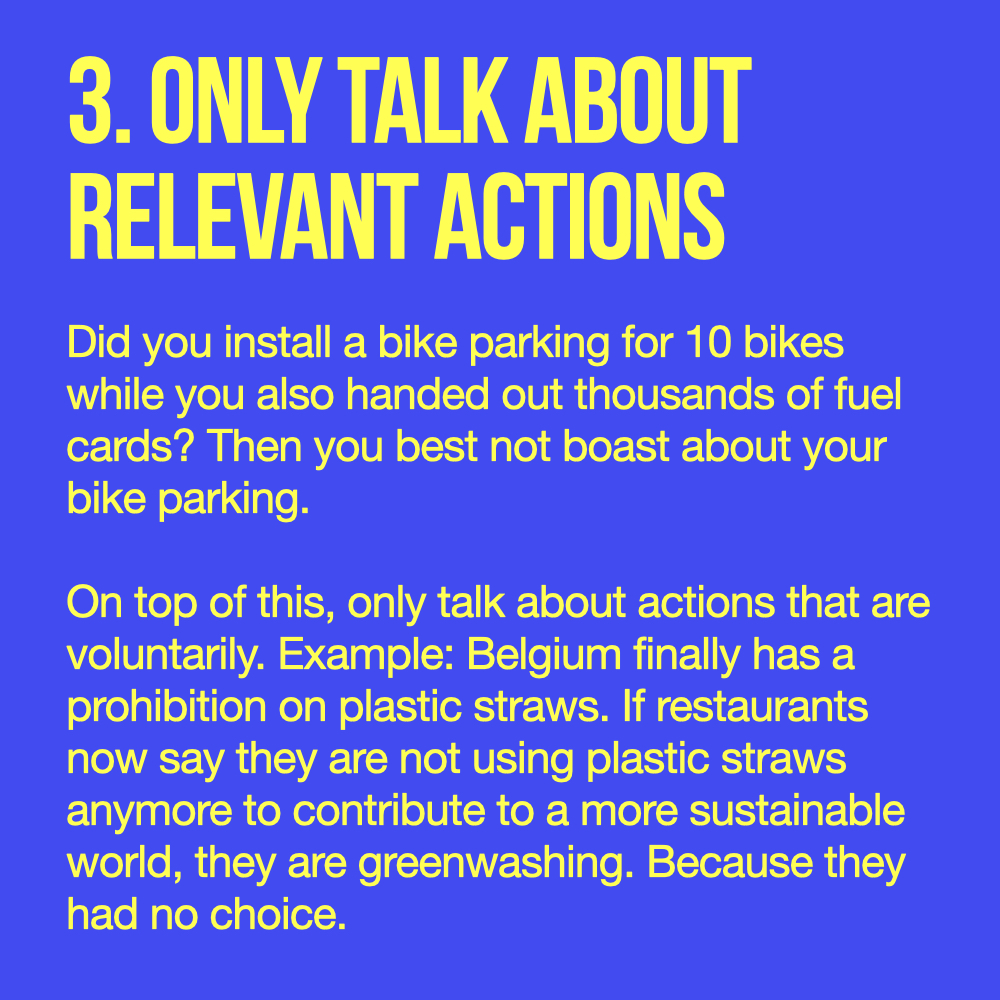
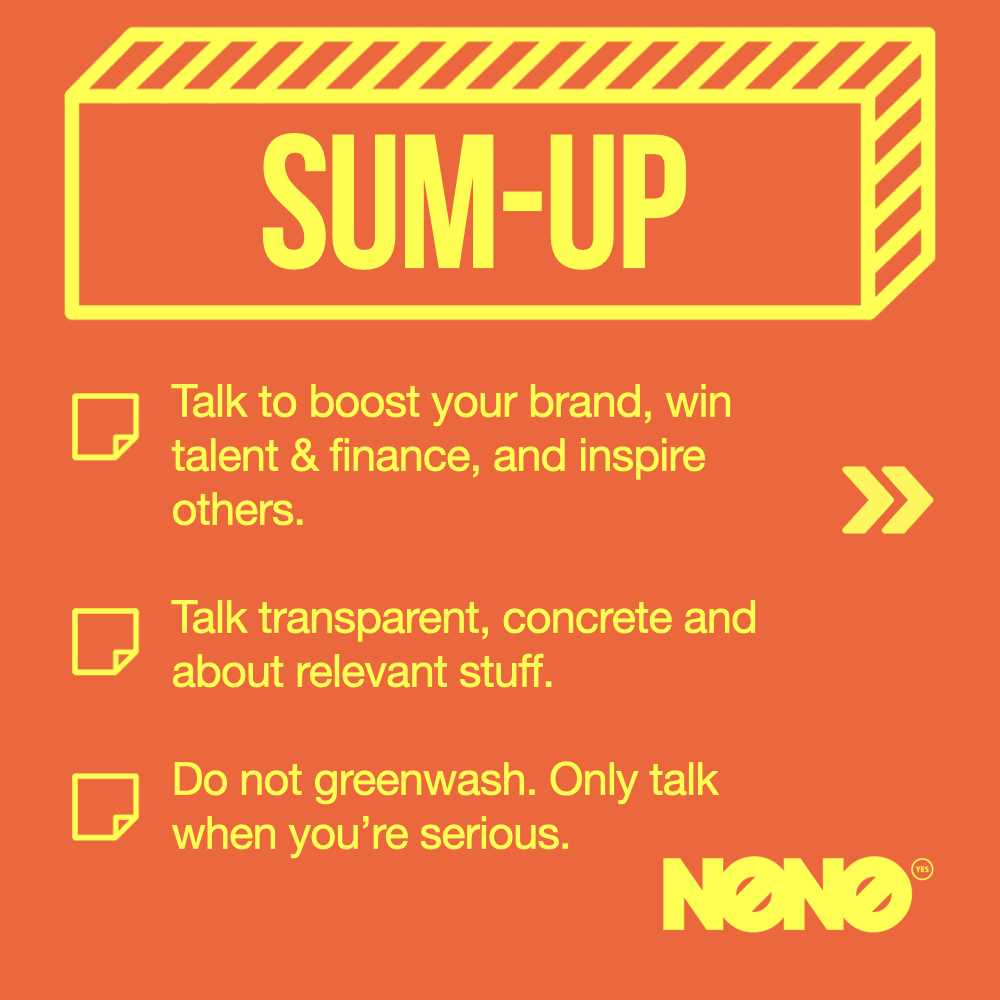
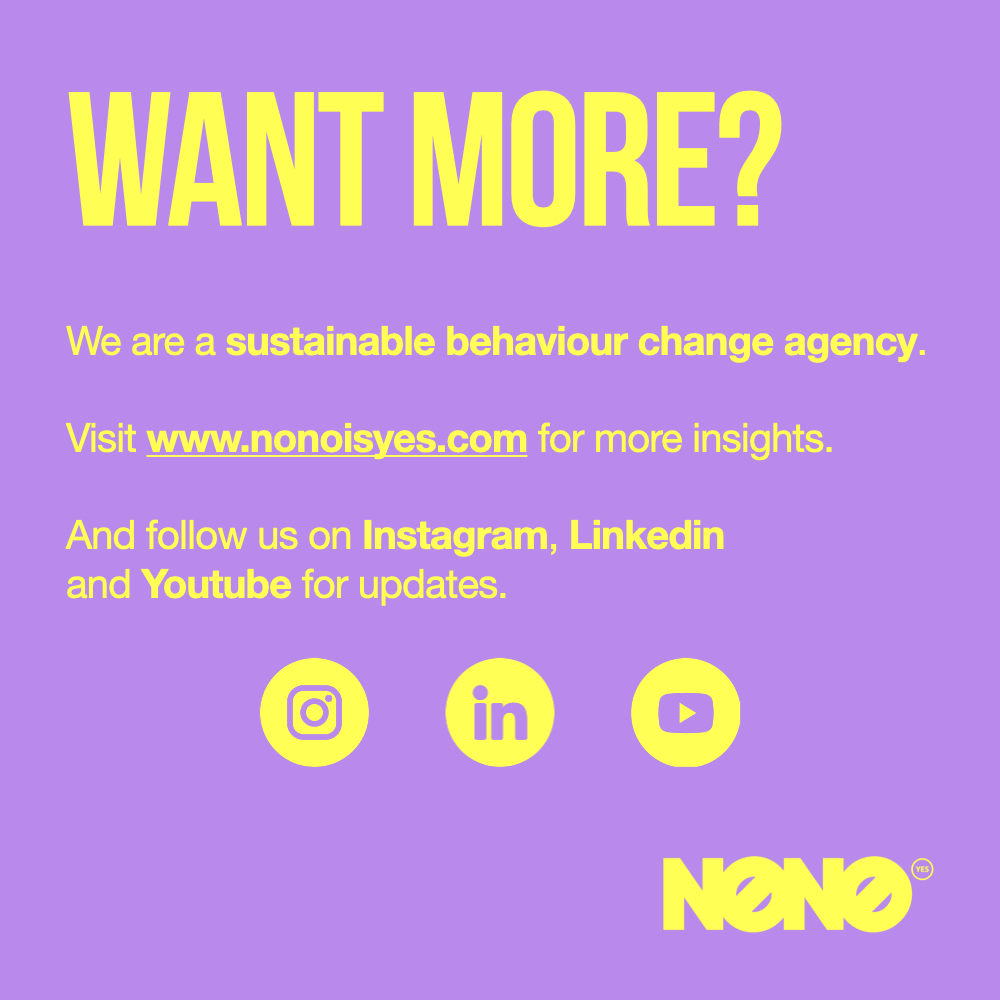
Talk sustainability or not?
A question companies increasingly ask themselves.
Sustainability has become a thing (thank god). If you’re doing good things as a company, you also want to talk about it. But if you do so carelessly, greenwashing lurks around the corner with reputation damage or even fines as a consequence.
As an example, both Decathlon and H&M had to adapt their vague sustainability claims. As a ‘fine’ they had to donate, respectively, 400.000 and 500.000 euros to several sustainable charities to compensate for their unclear and insufficiently substantiated sustainability claims (1).
That’s why we see a corporate landscape on two speeds. Opportunistic companies exaggerate about the magnitude of their sustainable efforts and don’t look back, while companies who are truly taking sustainable steps barely dare to talk about them.
In this article we would like to encourage companies who are truly and strategically working on sustainability to talk about it. And alternately, we hope to speak to the conscience of those companies who are currently greenwashing.
Why you should talk about sustainability
If you are seriously working on sustainability, you can achieve quite something by communicating about it.
1. Make your brand stronger
Research shows that brands who successfully match client expectations on sustainability are rewarded with higher turnover and more loyal customers (2). But how do they achieve that? But simply shouting ‘we are sustainable’?
No, first and foremost you need to provide a product that matches the quality expectations of your audience. But if on top of that, you can make someone feel they are becoming more sustainable themselves by using your product, you do hold a trump card.
Patagonia is still one of the leading examples: when you choose a Patagonia sweater, you also feel like (even if just for a moment) you are fighting for a better world.
It is however important to prove that your words are linked to actions. And this is exactly what makes Patagonia such a strong brand (3). Otherwise, you are greenwashing, which can have a negative effect.
2. Win the war for talent
Every company that puts out a job offer experiences less and less response from talent. And if talent shows up at your doorstep, they can often choose from multiple job offers from other companies. How do you beat the competition?
Research shows that 70% of Millennials are more likely to choose a company that has the environment on their agenda (4). This is part of a growing trend in which employees want to make a difference and want to work for a company that can help them achieve this. If you can prove with tangible communication that you are working on sustainability, you will be a more interesting place to work.
3. Inspire others with your standard
At the beginning of 2021 Larry Fink, CEO of investment firm Blackrock, wrote his yearly letter to the corporate world. And he wrote the historical sentence: “There is no company whose business model won’t be profoundly affected by the transition to a net zero economy… companies not quickly preparing themselves will see their businesses and valuations suffer.” (5).
Not much later companies followed suit: corporate America began to massively report on their sustainability efforts. Harvard Business Review wrote: “Sustainable Business Went Mainstream in 2021” (6). How one company raised the bar for the entire corporate scene.
Maybe you don’t have Larry Fink’s level of influence. But your examples can inspire other companies to make similar moves. Or to even join you.
Too Good To Go inspires everyone to fight food waste, but now they are also collaborating with Unilever to add new labels to packaging with the message “look, smell, taste, before you waste” (7). And the first results seem positive, customers are wasting less (8).
When you inspire others, you multiply your impact and enlarge your influence.
4. Get investments easier
Larry Fink, whom we referred to earlier, firmly believes investing in a non-sustainable company is a risk. The financial company agrees with him. In 2019 investors already stated that they emphasize sustainability 78% more than five years before (9).
To some companies, the idea of attracting new capital might sound far off, but other companies will acknowledge that the possibility to get financing with attractive conditions is a matter of survival. These conditions increasingly depend on the magnitude of a company’s sustainability efforts and whether they are perceived as sustainable.
(1) Redactie Adformatie (13 September 2022) Decathlon en H&M op vingers getikt om vage duurzaamheidsclaims. Adformatie. <https://www.adformatie.nl/gedragsverandering/n-en-hm-op-vingers-getikt-door-acm>.
(2) Bain & Company (2019b). The Power of Delivering Elements of Value in Consumer Products. Bain & Company.
(3) Demkes, E. (2022) Hoe feller Patagonia zich verzet tegen de consumptiemaatschappij, hoe groter het kledingmerk wordt. De Correspondent.
(4) InSites Consulting (2017) Millennials at Work.
(5) Larry Fink, Blackrock (2021). Larry Fink’s 2021 letter to CEO’s <https://www.blackrock.com/corporate/investor-relations/2021-larry-fink-ceo-letter>
(6) Winston, A. (2021) Sustainable Business Went Mainstream in 2021. Harvard Business Review.
(7) Unilver (2022) Too Good To Go en Unilever gaan met nieuwe labels op verpakkingen voedselverspilling tegen. <https://www.unilever.nl/news/2022/too-good-to-go-en-unilever-gaan-met-nieuwe-labels-op-verpakkingen-voedselverspilling-tegen/>.
(8) Sustainababbels (2022). #28 Wat zijn de mogelijkheden en grenzen van een activistische missie voor een internationaal merk? Spotify. <https://open.spotify.com/episode/7CfEQTX3IGU16D3hvZ3Pg1?si=MF-JsqlNQI2xoMyqBu7KLQ>
(9) Bain & Company (2019a) Private Equity Investors Embrace Impact Investing.
(10) Tony Chocolonely (2020) De échte kosten van armoede. <https://tonyschocolonely.com/nl/nl/onze-missie/nieuws/de-echte-kosten-van-armoede>.
(11) FOD Volksgezondheid, veiligheid van de voedselketen en leefmilieu (2022) Plastic wattenstaafjes en tafelgerei verboden vanaf 24 januari. Health Belgium. <https://www.health.belgium.be/nl/news/plastic-wattenstaafjes-en-tafelgerei-verboden-vanaf-24-januari>.
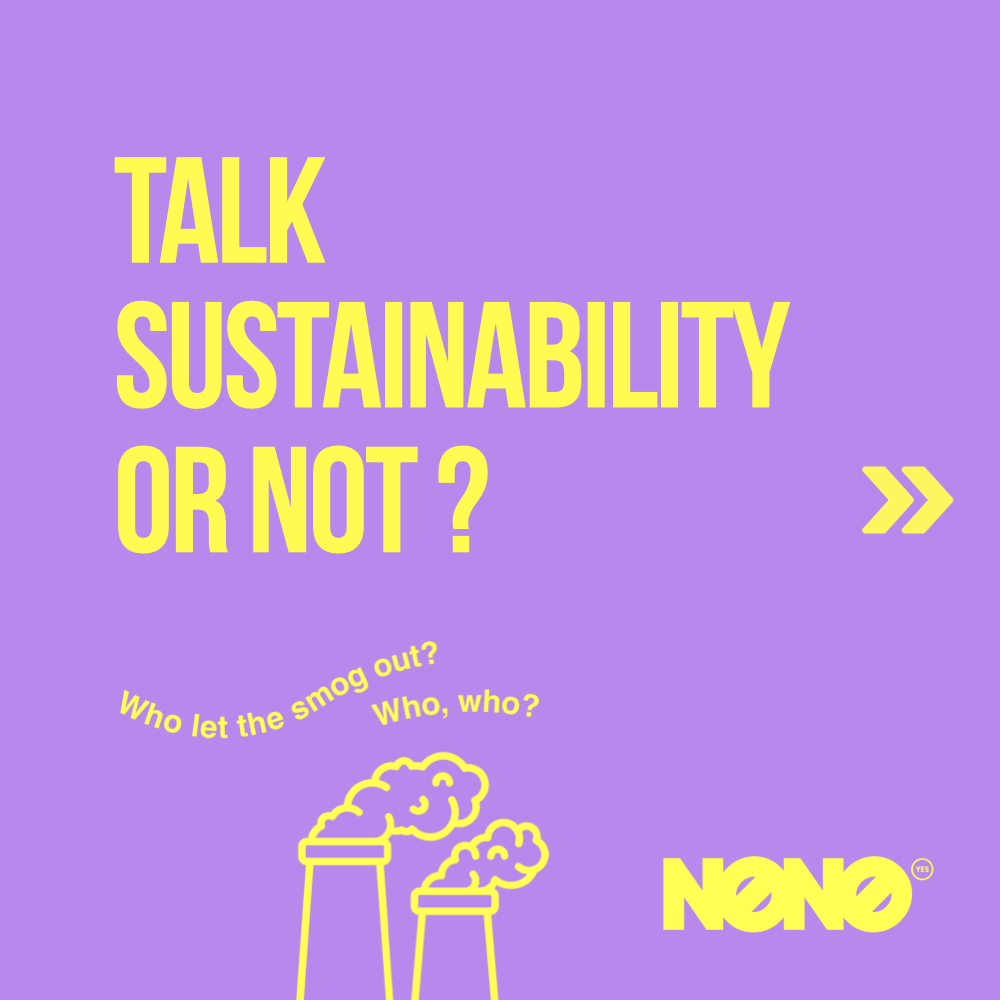
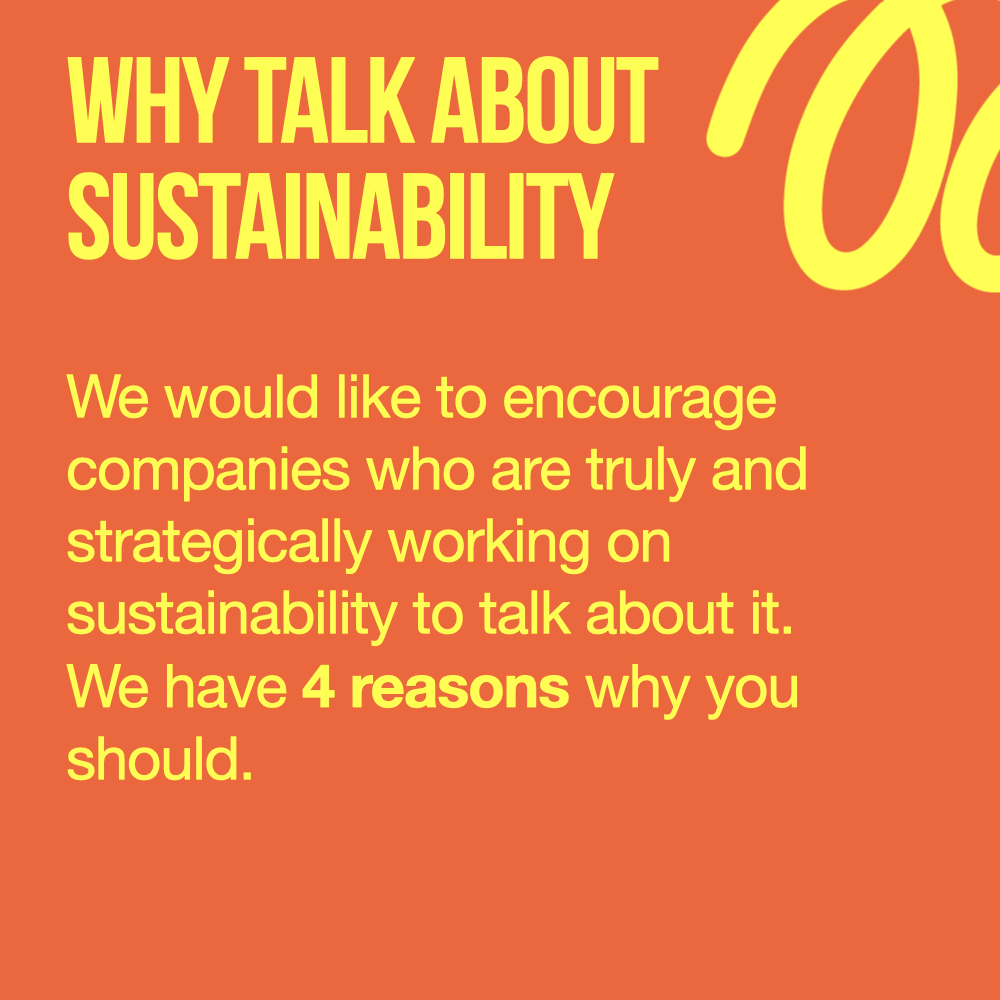
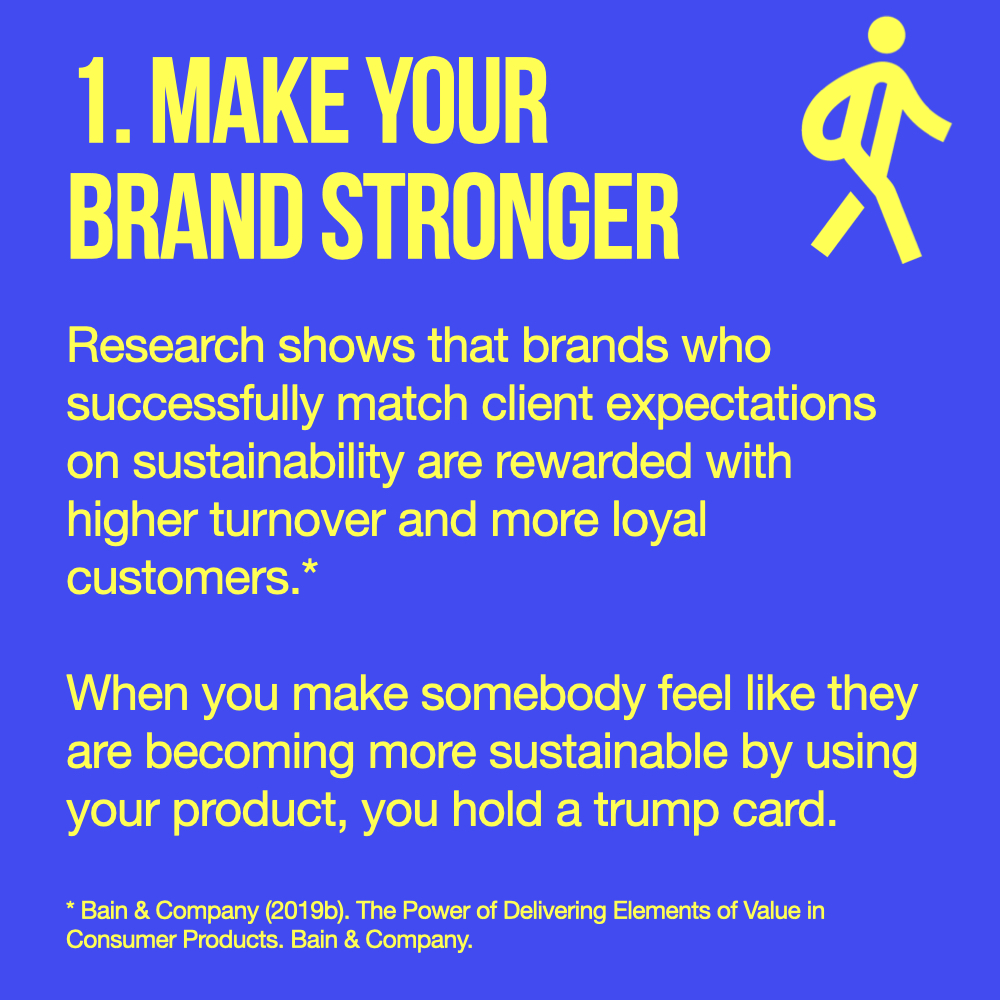
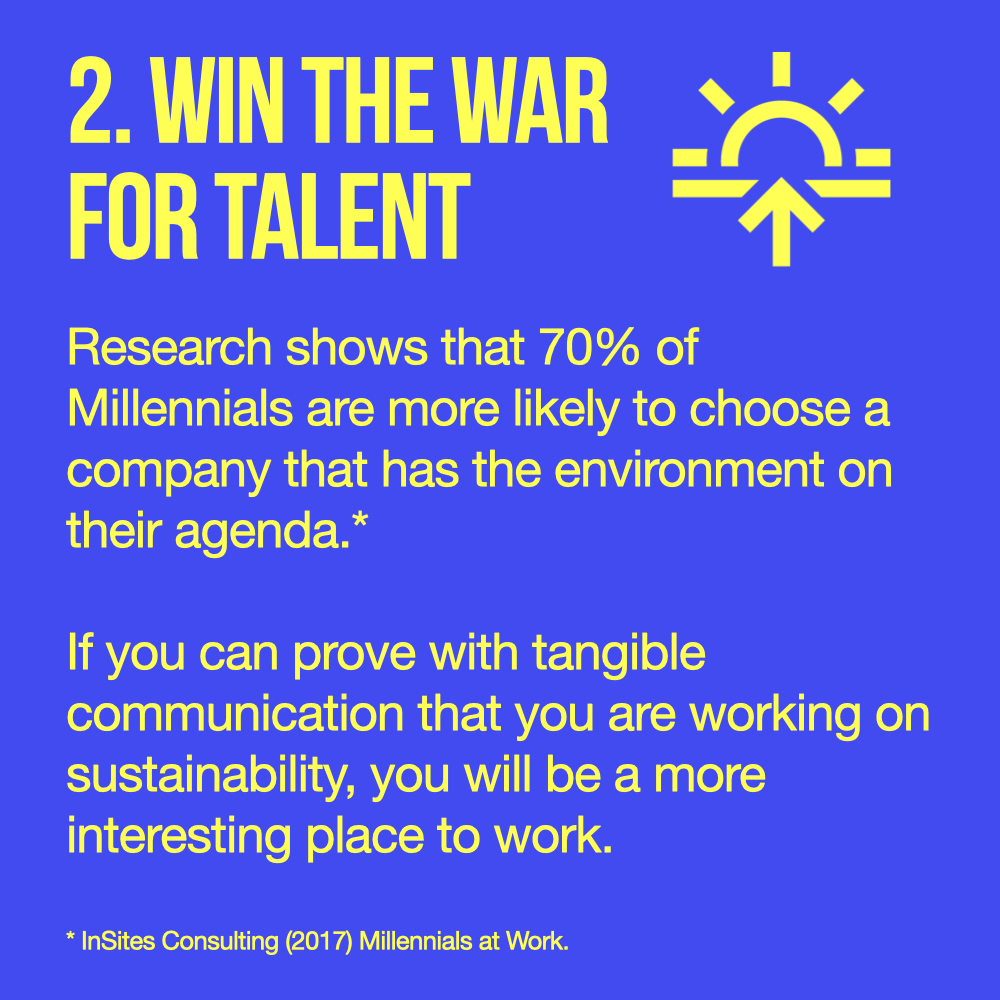
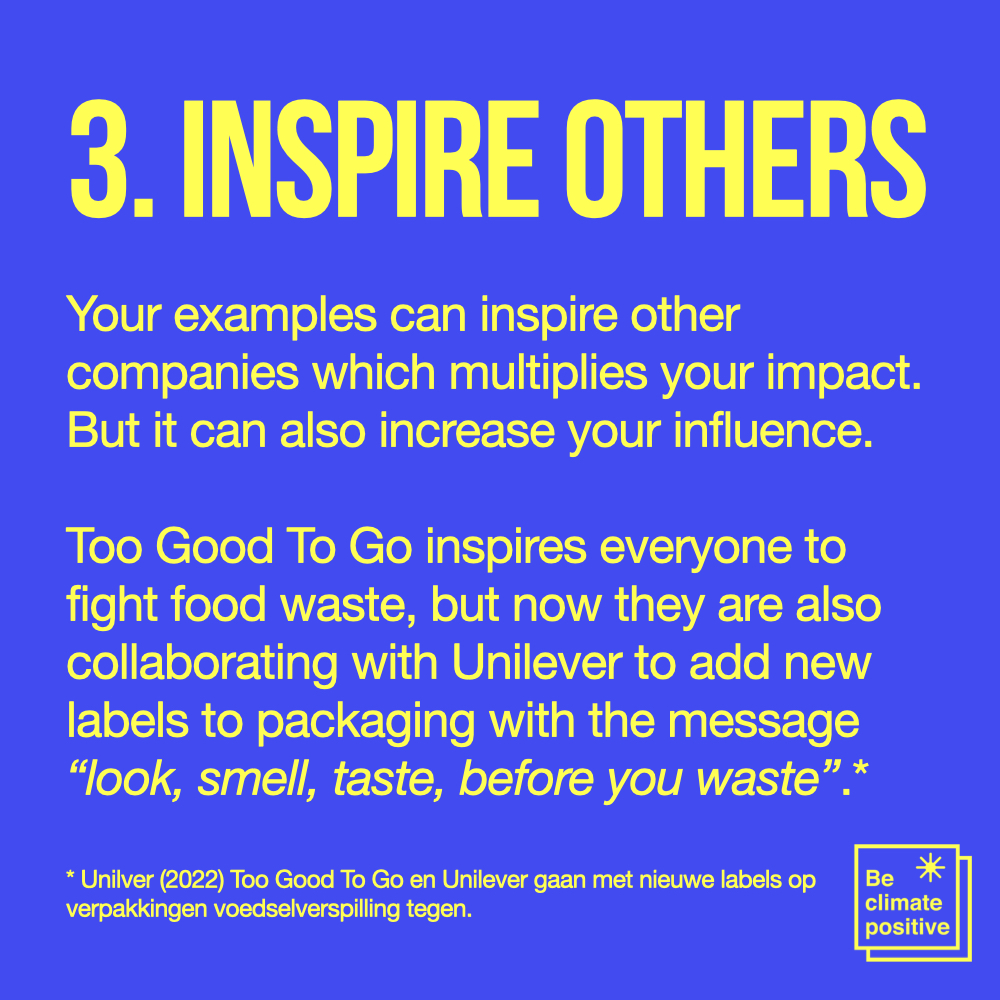
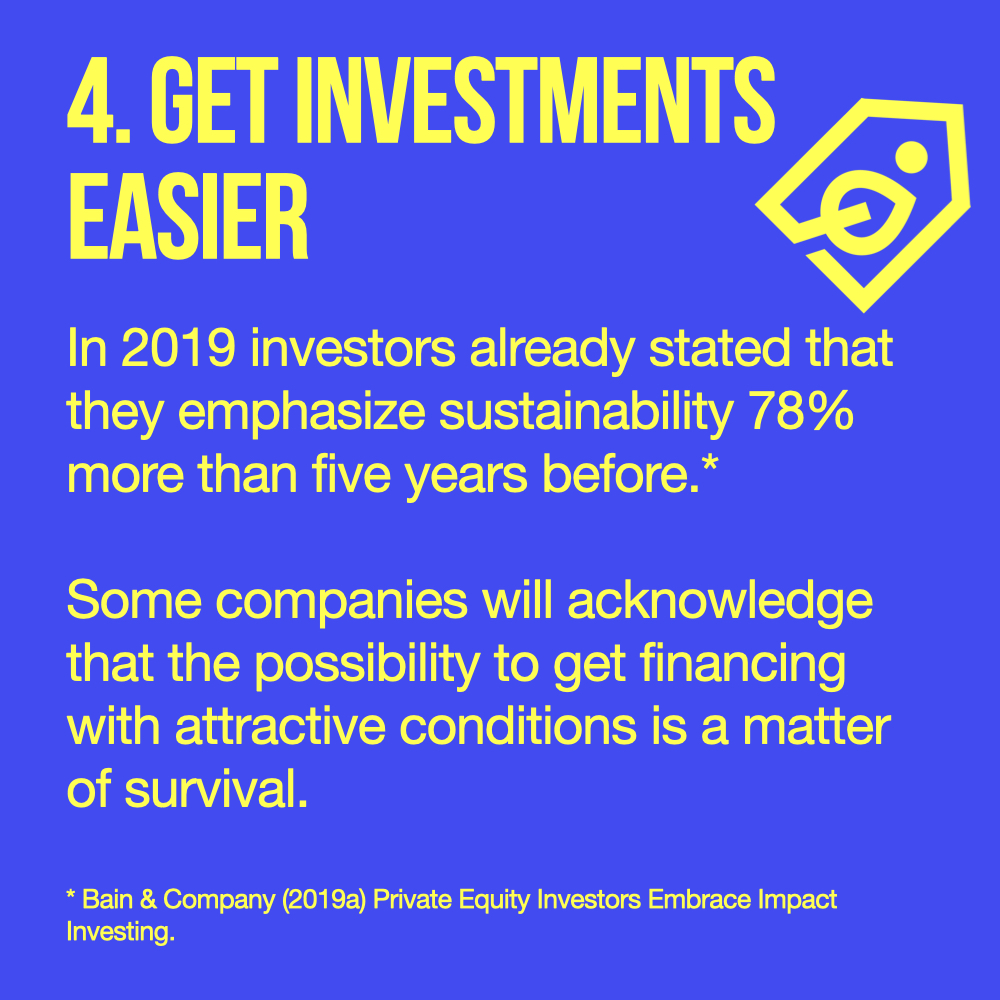
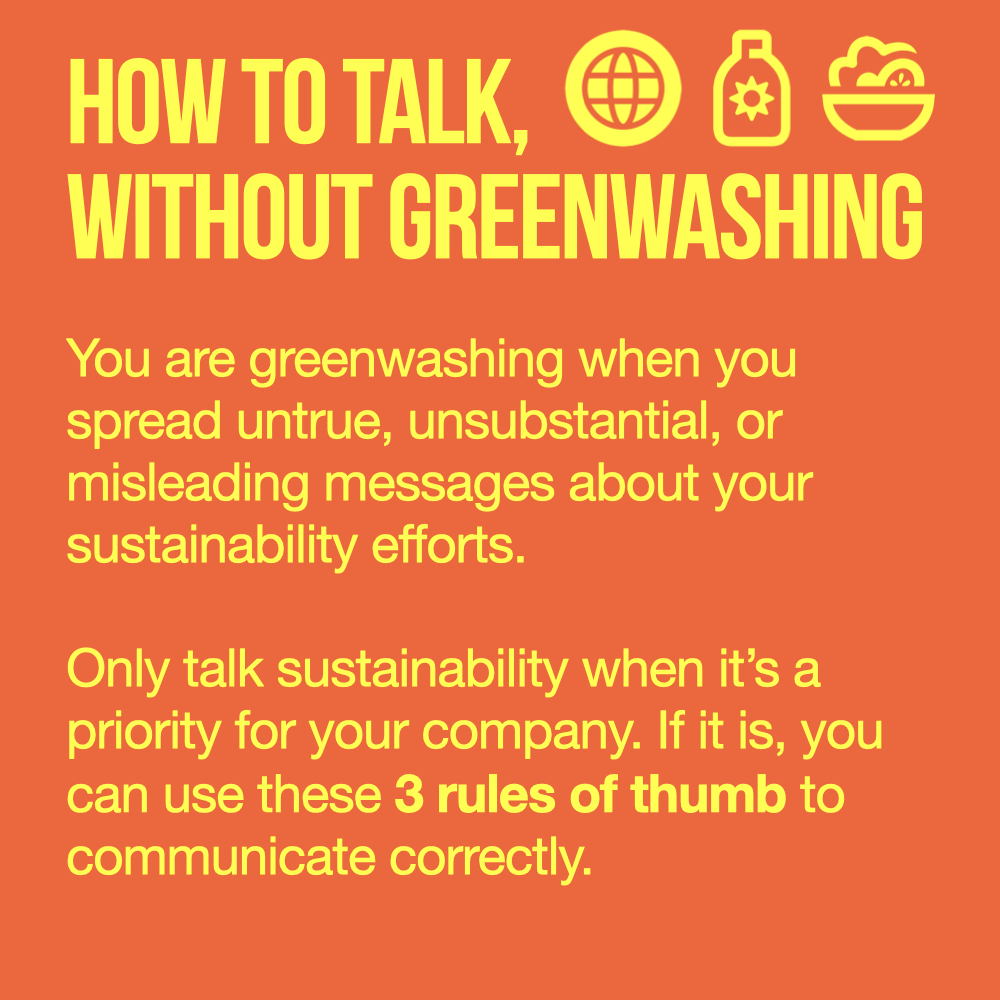
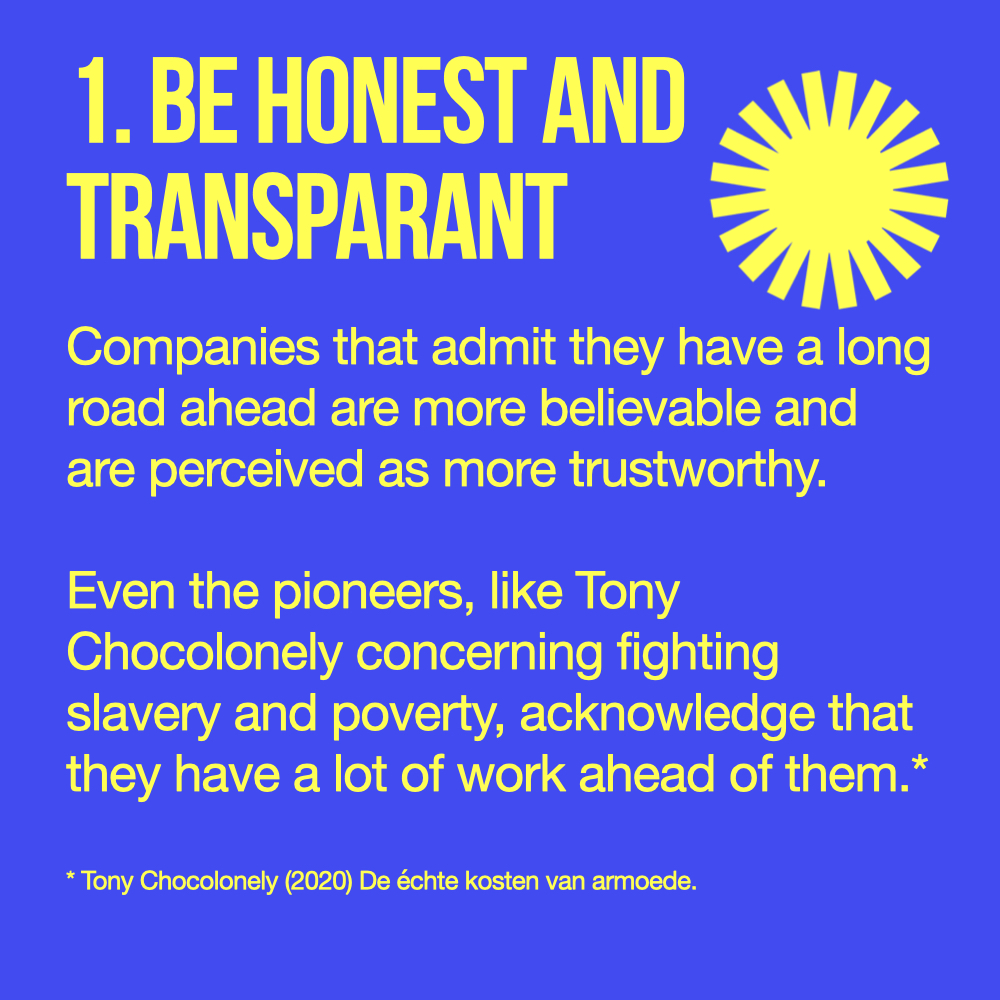
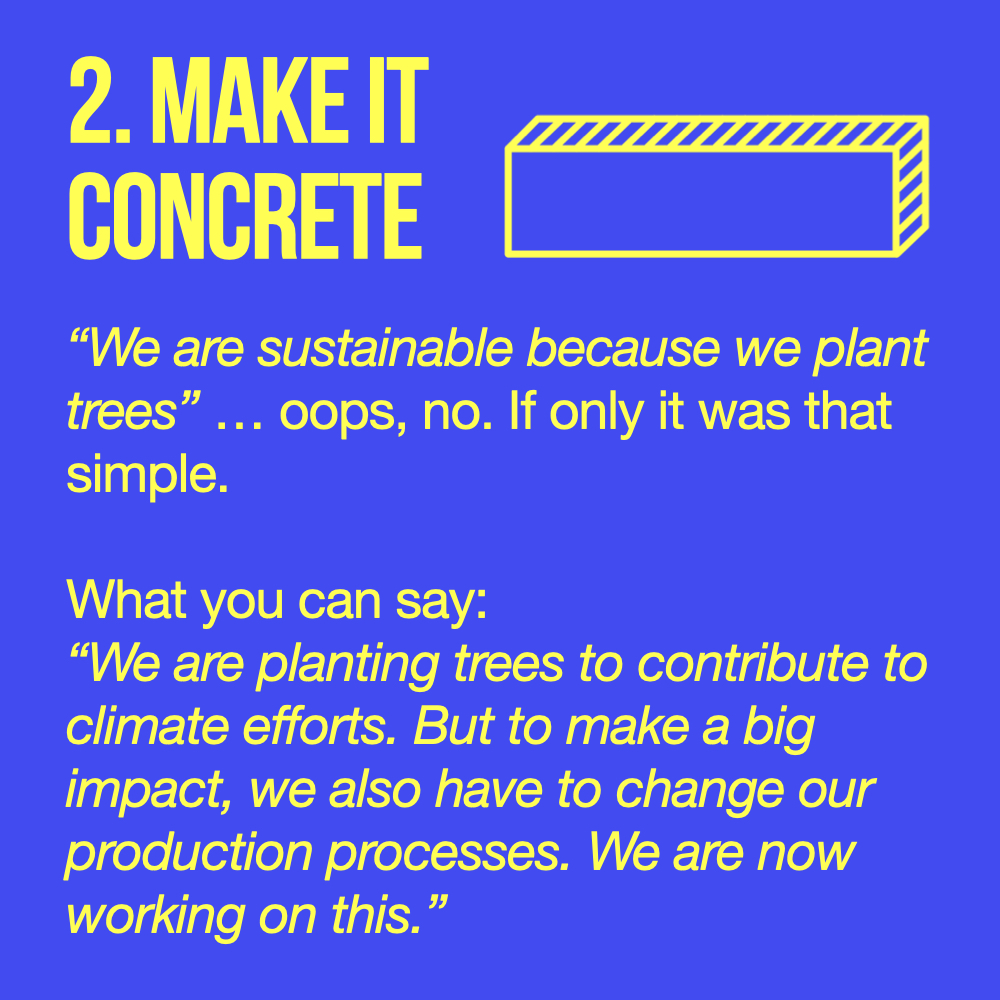
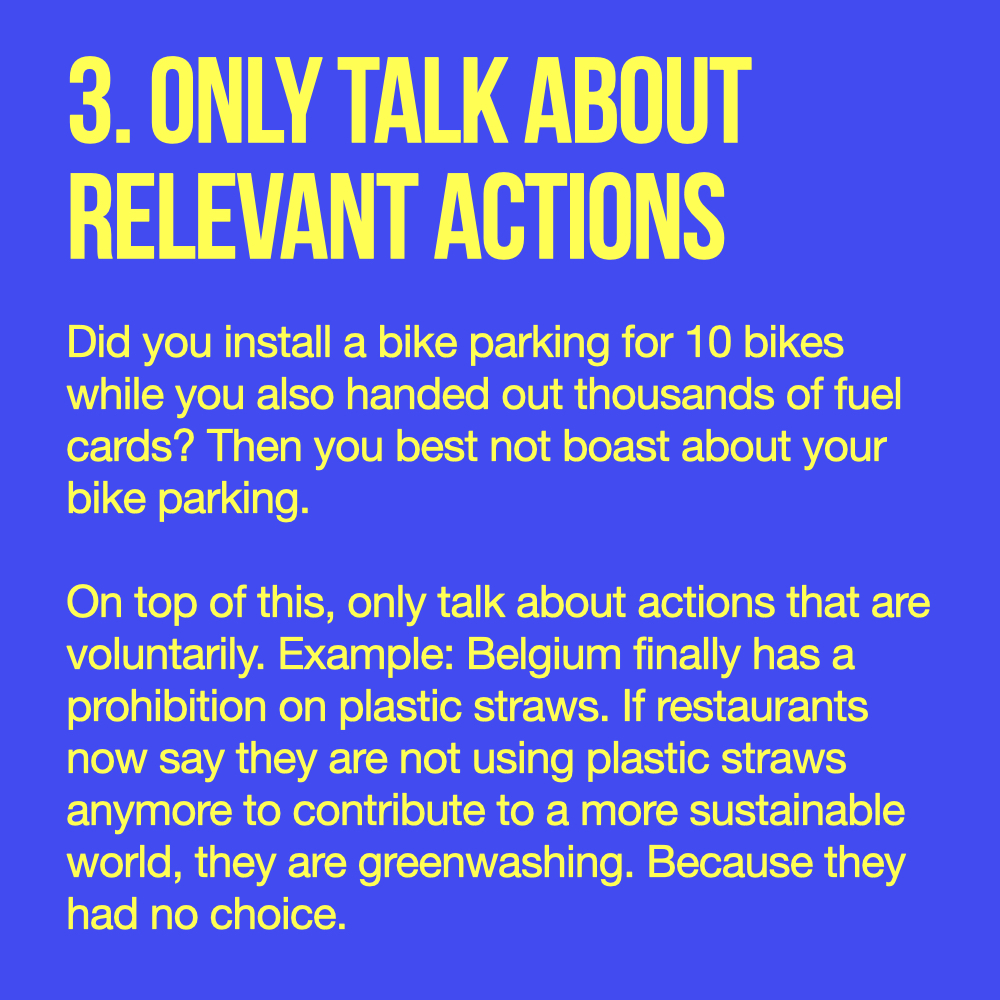
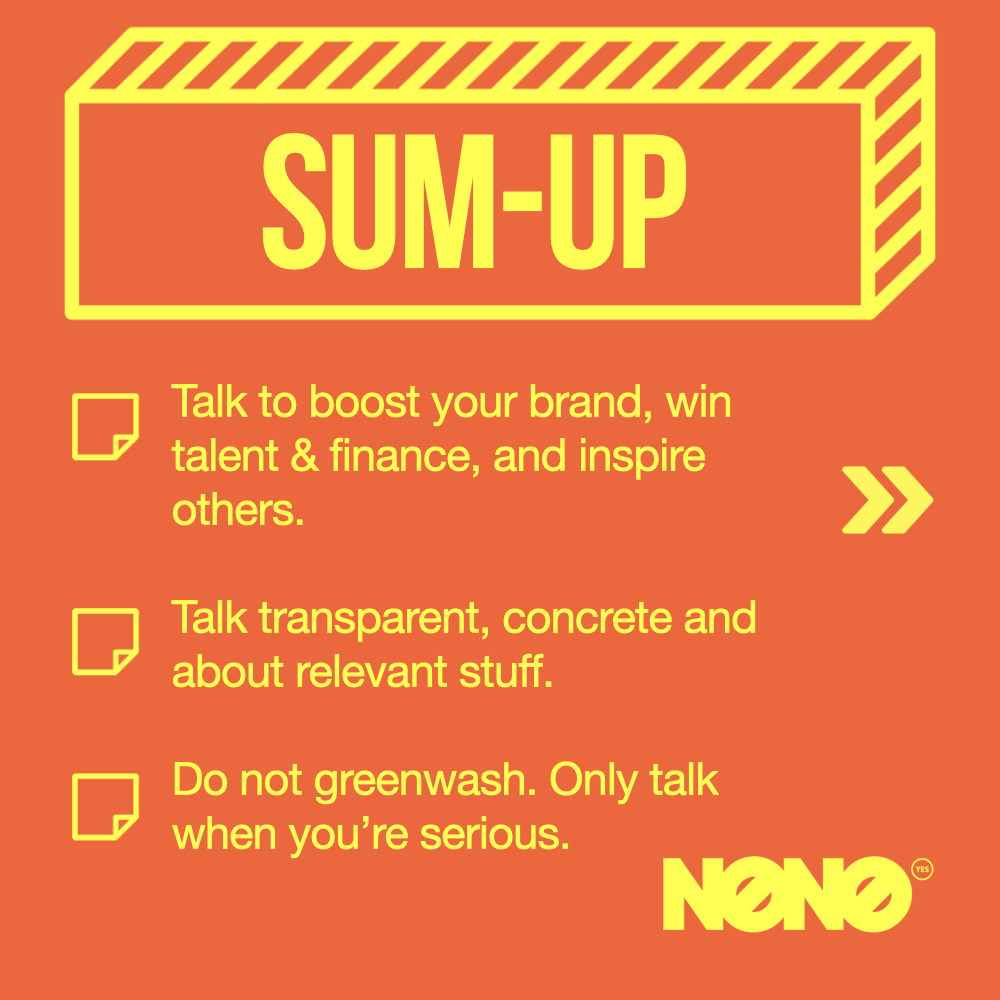
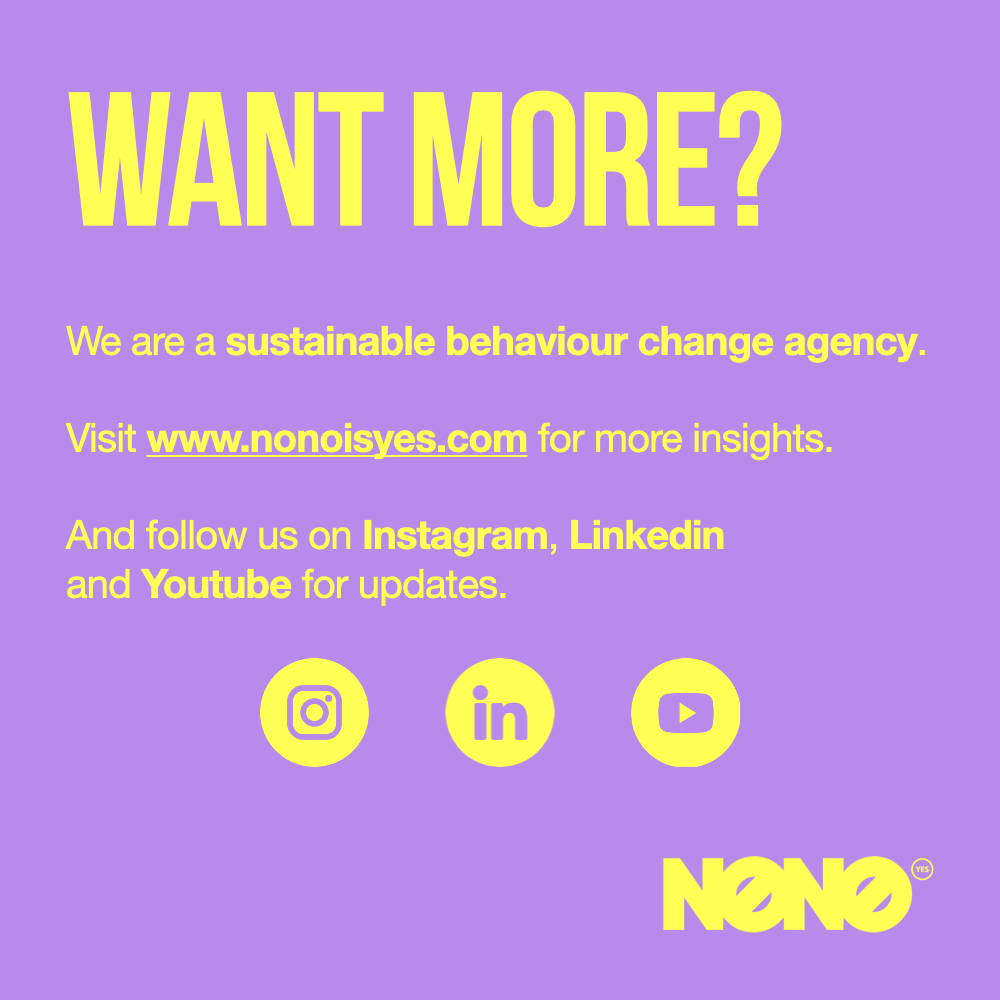
How do you talk about sustainability, without greenwashing
You’ve heard it. There are more than enough reasons to talk about sustainability. But this is not a plea to proclaim yourself greener than you are.
You are greenwashing when you spread untrue, unsubstantial, or misleading messages about your sustainability efforts. This is unethical, because customers wrongly place too much trust in your efforts, and as a result, might also believe that the world’s problems will solve themselves.
That’s why you only talk about sustainability when your company has turned it into a priority and you have started working on it at the core of your activities. When you are doing this, you can use these rules of thumb to talk correctly about sustainability. And consequently, increase your positive influence.
1. Be honest and transparent
Few companies can resist the urge to pretend to be better than they are. Unjustified, with regard to sustainability. Companies that admit they have a long road ahead are more believable and are perceived as more trustworthy.
Even the pioneers, like Tony Chocolonely concerning fighting slavery and poverty, acknowledge that they have a lot of work ahead of them (10). And we like them because of it, as long as they keep on proving they are taking steps towards their ambitious goal.
Don’t proclaim you ‘are sustainable’. Rather put your specific efforts under the spotlight.
2. Make it concrete
“We are sustainable because we plant trees” … oops, no. If only it was that simple.
‘Sustainability’ is an abstract and vague term. It doesn’t clarify what you are actually doing. Sadly, because of its vagueness, it is often consciously used to mislead or to avoid responsibility.
What you can say:
“We are planting trees to contribute to climate efforts. But to make a big impact, we also have to change our production processes. We are now working on this.”
In this way, you make concrete in which ways you work on sustainability, but also allow others to verify this. Provability is an important criterion for your sustainable messages.
3. Only talk about relevant actions
Did you install a bike parking for 10 bikes while you have also just handed out thousands of fuel cards? Then you best not boast about your bike parking. The actions that are worth sharing are the actions that have a meaningful influence on your organization’s impact.
On top of this, you only talk about actions that you take voluntarily and are not due to a legal obligation. As an example, Belgium finally has a prohibition on plastic straws (11). If restaurants now start posting they are not using plastic straws anymore to contribute to a more sustainable world, they are greenwashing. Because they had no choice.
If you want to talk about similar actions, you best act faster than policymakers do.
So
Talk about sustainability if you are taking meaningful actions. You make your brand stronger, win the war for talent, inspire others and get financing easier. But don’t pretend to be greener than you are. Always be honest and transparent, be concrete, and only talk about relevant actions.
Would you like to start communicating or are you curious about how to do it with impact? Or are you still unsure about what you can exactly talk about? Tell us about your question and we would be happy to advice you.
(1) Redactie Adformatie (13 September 2022) Decathlon en H&M op vingers getikt om vage duurzaamheidsclaims. Adformatie. <https://www.adformatie.nl/gedragsverandering/n-en-hm-op-vingers-getikt-door-acm>.
(2) Bain & Company (2019b). The Power of Delivering Elements of Value in Consumer Products. Bain & Company.
(3) Demkes, E. (2022) Hoe feller Patagonia zich verzet tegen de consumptiemaatschappij, hoe groter het kledingmerk wordt. De Correspondent.
(4) InSites Consulting (2017) Millennials at Work.
(5) Larry Fink, Blackrock (2021). Larry Fink’s 2021 letter to CEO’s <https://www.blackrock.com/corporate/investor-relations/2021-larry-fink-ceo-letter>
(6) Winston, A. (2021) Sustainable Business Went Mainstream in 2021. Harvard Business Review.
(7) Unilver (2022) Too Good To Go en Unilever gaan met nieuwe labels op verpakkingen voedselverspilling tegen. <https://www.unilever.nl/news/2022/too-good-to-go-en-unilever-gaan-met-nieuwe-labels-op-verpakkingen-voedselverspilling-tegen/>.
(8) Sustainababbels (2022). #28 Wat zijn de mogelijkheden en grenzen van een activistische missie voor een internationaal merk? Spotify. <https://open.spotify.com/episode/7CfEQTX3IGU16D3hvZ3Pg1?si=MF-JsqlNQI2xoMyqBu7KLQ>
(9) Bain & Company (2019a) Private Equity Investors Embrace Impact Investing.
(10) Tony Chocolonely (2020) De échte kosten van armoede. <https://tonyschocolonely.com/nl/nl/onze-missie/nieuws/de-echte-kosten-van-armoede>.
(11) FOD Volksgezondheid, veiligheid van de voedselketen en leefmilieu (2022) Plastic wattenstaafjes en tafelgerei verboden vanaf 24 januari. Health Belgium. <https://www.health.belgium.be/nl/news/plastic-wattenstaafjes-en-tafelgerei-verboden-vanaf-24-januari>.